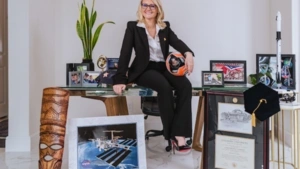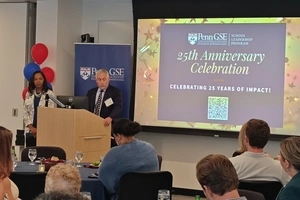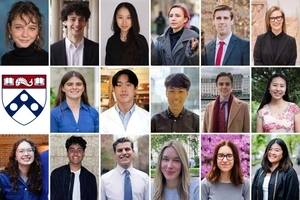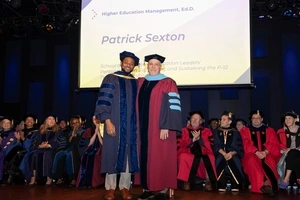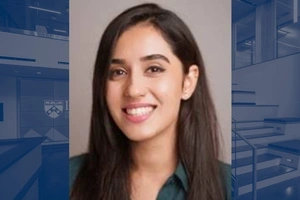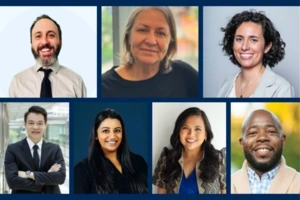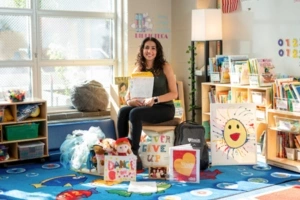Lauren Goodwin has never fit the mold. Not as a first-generation college student from rural Pennsylvania who went on to earn advanced degrees at Columbia and Penn. Not as the only female in engineering, cybersecurity, and technology roles in high-hazard environments in the energy and space industries. Not even as a member of her cohort in Penn GSE’s Executive Doctorate in Higher Education Management program, where, as the chief information officer for NASA, she stood out in a room full of longtime educators and administrators.
But that’s OK. It means she can identify issues and opportunities that other people more comfortably ensconced in those worlds might overlook. Plus, she likes to rise to a challenge.
“I always say to people, ‘Don’t ever let anyone tell you that you can’t do something,’” said Goodwin. “That has been the ethos of my career.”
She started out at NASA, straight out of American University, working as a systems engineer. It was part of her job to integrate systems on the International Space Station (ISS).
“I was able to use the role of technology and data to serve our astronauts better,” she said. “A cornerstone of my work was, ‘What could we do with the data to help the crew breathe and perform their spacewalks more efficiently?’ And then, ‘How could we launch the payload—the high-pressure gas systems—on the shuttle program?’ Technology was an enabler of the mission, and my purpose was using it to discover how we can serve people.”
Though she would later return to NASA as CIO, in between she worked in the energy and healthcare industries, using her STEM background to undertake pioneering work with data analytics, cybersecurity, and artificial intelligence. But once she started graduate school, she became fascinated by a new frontier: the neuroscience of learning.
She developed research—which is still ongoing—that maps the neural patterns of the brain to best understand how to deliver the most engrossing models of learning. Now, in her current roles as both affiliated faculty at Columbia University and the founder of two startups, she leverages that work to help educators better serve students.
Her home office in Houston, Texas, is full of the souvenirs of a career spent working across the spectrum in science and technology, helping plot space exploration, data security, and even the human brain. We were lucky enough to get a tour.
Find the full tour in the spring/summer issue of Penn GSE Magazine.
Media Inquiries
Penn GSE Communications is here to help reporters connect with the education experts they need.
